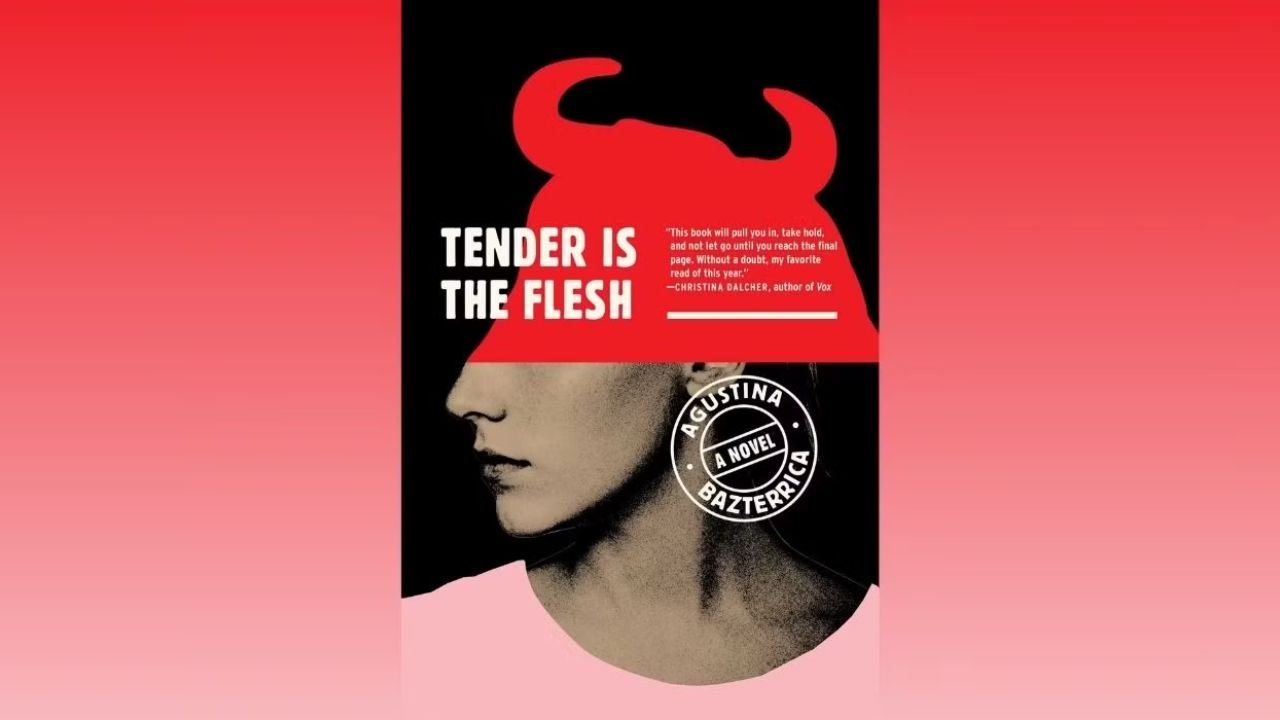Dystopian fiction has always served as a mirror reflecting human society’s fears and faults, but “Tender is the Flesh” by Agustina Bazterrica takes this concept to a shocking, visceral level. A bold, unsettling exploration of cultural, ethical, and moral boundaries, this novel compels readers to question their own humanity. What happens when society normalizes the unthinkable? Through its dystopian lens, “Tender is the Flesh” explores themes of capitalism, commodification, and the perverse realities of human consumption.
For book lovers and dystopian fiction enthusiasts, this novel isn’t just a read—it’s an experience. By the end, you’ll find yourself revisiting its core question about morality and human nature, long after you’ve turned the final page.
About the Author – Agustina Bazterrica
Agustina Bazterrica, an acclaimed Argentine author, brings forth a sharp, uncompromising voice in contemporary literature. Born in Buenos Aires, Bazterrica built her career by exploring dark, existential themes, and “Tender is the Flesh” is undoubtedly her most notable masterpiece to date. Both a work of art and a chilling societal commentary, her writing style is unflinchingly direct, drawing readers into a world where every word lands like a deliberate blow.
Bazterrica’s background in literature, coupled with her exploration of art and philosophy, comes alive in this work. Her narrative is meticulously constructed, with precision that ensures no detail feels accidental.
Synopsis – The Plot of Tender is the Flesh
Set in an unsettling near-future dystopia, “Tender is the Flesh” imagines a time when a deadly virus makes non-human animals unsafe to eat. To replace this void, societies pivot to industrially farming humans for meat—”special meat,” as they call it.
The story centers on Marcos, who works at a processing plant, reflecting growing global acceptance of “cannibalistic capitalism.” Despite finding himself numb to the brutality of his world, Marcos faces an ethical crisis when he receives a “gift”—a human specimen meant for slaughter.
The novel doesn’t shy away from depicting the harrowing realities of its dystopian landscape. Bazterrica methodically constructs this disturbing world, highlighting the moral dilemmas and consequences of dehumanization. As the story unfolds, it becomes impossible not to wonder—how far would humanity go to survive at the expense of its own morality?
Thematic Elements in Tender is the Flesh
At its core, “Tender is the Flesh” explores several haunting themes:
The Devaluation of Life
The commodification and normalization of human meat raise urgent questions about ethical gray areas. Bazterrica critically examines how society devalues life when it becomes convenient to do so.
Ethical Dilemmas and Cognitive Dissonance
From characters rationalizing eating “special meat” to the systemic justifications for exploitation, the novel reveals how easily individuals conform to societal norms, no matter how grotesque they may be.
Societal Commentary
The book mirrors modern society, delivering a critique of capitalism, industrial farming, and the way humans disconnect from the consequences of their consumption habits.
Bazterrica uses this dystopian filter to challenge readers to consider their own ethical frameworks.
Character Analysis
Marcos Tejo
Marcos is the protagonist and moral compass of the novel, though he is far from heroic. His dispassionate demeanor highlights the desensitization experienced by those entrenched in the dystopian system. Marcos’ moral conflict becomes a central element of the narrative, serving as a chilling reminder of human adaptability—even to horror.
The “Specimen”
Though never given a name, the female “specimen” gifted to Marcos becomes the novel’s most powerful symbol. Her existence embodies themes of dehumanization, systemic oppression, and society’s addiction to power imbalances.
By juxtaposing Marcos’ emotional struggle against the backdrop of her silent suffering, Bazterrica forces readers to reckon with the complexities of morality.
Writing Style and Narrative Technique
Bazterrica’s prose is sparse, sharp, and deliberate. The lack of quotation marks emphasizes the narrative’s detached tone, paralleling the dehumanized world it describes. This minimalist approach makes the violent imagery even more potent, leaving readers with a visceral understanding of the story’s horrors.
Her use of world-building is another standout feature. From detailed descriptions of processing plants to chilling governmental policies, Bazterrica constructs a world that feels frighteningly plausible.
Critical Reception
Since its release, “Tender is the Flesh” has garnered widespread critical acclaim. Hailed as bold and thought-provoking, Bazterrica’s novel has been compared to works like 1984 and The Handmaid’s Tale in its scope and impact.
While many applaud its unflinching storytelling, some critics argue that its graphic content may alienate certain readers. Nevertheless, this divisive quality only serves to underscore its power—love it or hate it, you will feel something.
Personal Reflection
Reading “Tender is the Flesh” is not for the faint of heart. It’s confrontational, unsettling, and deeply thought-provoking—qualities that make it as unforgettable as it is uncomfortable. For me, the novel highlighted how societal structures normalize the unacceptable, often blurring personal morality in the process. It’s both a warning and an invitation to reflect on our own beliefs.
Would I recommend it? Absolutely—but only if you’re ready to confront the darker corners of human nature.
You May Also Like: AudiobookBay: Your Gateway to Endless Listening Pleasure
Conclusion
Agustina Bazterrica dares to ask the hard questions. At its heart, “Tender is the Flesh” is an examination of what it truly means to be human. If you’re a fan of dystopian fiction or novels that challenge your perceptions of morality, this book is a must-read. Its themes will stay with you long after the last page.
FAQs
What genre is Tender is the Flesh?
It falls under dystopian fiction, exploring ethical, social, and philosophical themes.
Is Tender is the Flesh hard to read?
The novel’s graphic and disturbing content may be challenging for some readers, though its prose is accessible.
What is the main message of Tender is the Flesh?
The novel critiques societal practices that enable dehumanization, commodification, and moral desensitization.
Is Tender is the Flesh appropriate for young audiences?
Due to its violent and explicit themes, the novel is more suited for mature readers.
Can Tender is the Flesh be compared to other dystopian novels?
Yes, it has been likened to classics like The Handmaid’s Tale and Never Let Me Go, though its subject matter is uniquely provocative.











